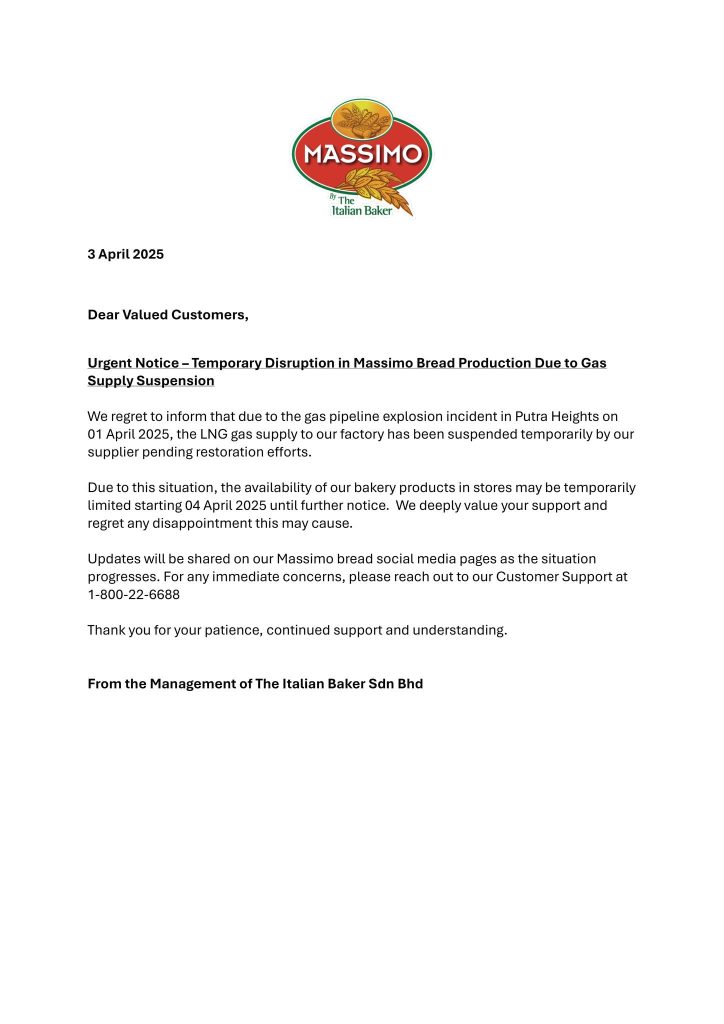By The Malketeer
Massimo’s Strategic Crisis Management and Brand Resilence in Managing Supply Disruption
In a world where supply chain disruptions can quickly snowball into reputational crises, how brands communicate and manage expectations often determines their long-term consumer trust.
A recent incident involving Massimo, Malaysia’s popular bread brand, serves as a compelling case study in crisis management and brand resilience.
On April 1st, a gas pipeline explosion in Putra Heights disrupted the liquefied natural gas (LNG) supply, affecting production at The Italian Baker Sdn Bhd, the company behind Massimo bread.
With a fire raging for hours and impacting nearly 200 homes, the incident was not just an industrial setback but a humanitarian crisis as well.
While the nation reeled from the tragedy, Massimo found itself facing a challenge that could test any brand’s mettle: an unavoidable supply disruption.
Proactive and Transparent Communication
Rather than allowing speculation to spread, Massimo took immediate control of the narrative.
On April 3rd, the company issued a clear and empathetic statement via social media, informing consumers of the expected shortage beginning April 4th and offering a helpline for immediate concerns.
This strategic approach did more than just provide an update—it reassured customers that the company was actively managing the situation.
In a digital age where misinformation and frustration can escalate rapidly, such proactive transparency is essential.

Maintaining Brand Trust Amidst Uncertainty
Brands that dominate the FMCG (fast-moving consumer goods) landscape know that consistency is key.
A disruption, no matter how temporary, can shake consumer loyalty if not handled well.
By openly addressing the issue, updating consumers regularly, and maintaining engagement via its social media channels, Massimo ensured that its brand remained synonymous with reliability—even in times of crisis.
Furthermore, the crisis put the brand’s values in the spotlight.
The explosion left 305 residents displaced, many requiring medical attention.
A brand’s response to such a tragedy extends beyond corporate responsibility—it is a testament to its character.
Lessons for Marketers & Brands
As Massimo navigates this unexpected disruption, its effective handling of the situation highlights the importance of brand communication and crisis preparedness.
Share Post:
Haven’t subscribed to our Telegram channel yet? Don’t miss out on the hottest updates in marketing & advertising!